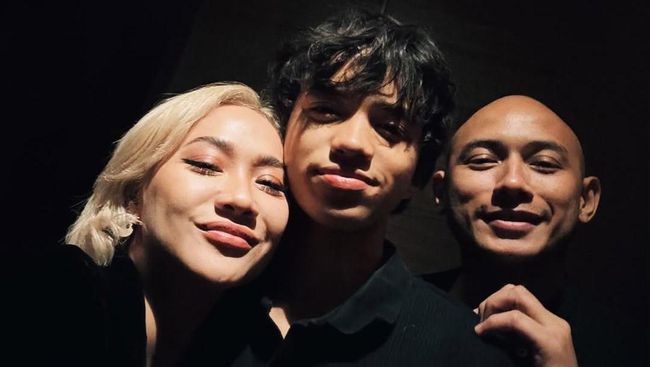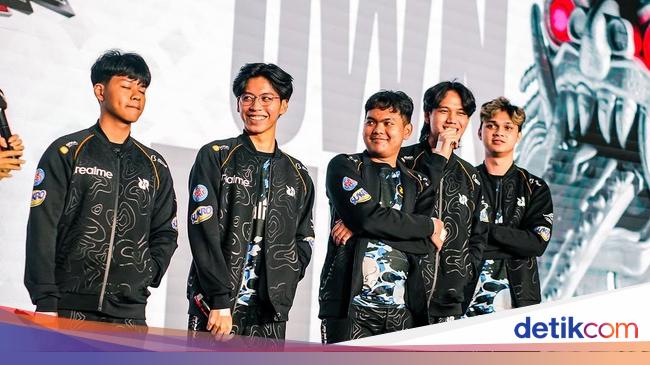
Ryan O'HanlonSep 22, 2025, 09:25 AM ET
- Ryan O'Hanlon is a staff writer for ESPN.com. He's also the author of "Net Gains: Inside the Beautiful Game's Analytics Revolution."
It used to be pretty easy to predict who would win the Ballon d'Or. You could just grab a coin, label heads as "Lionel Messi" and tails as "Cristiano Ronaldo," and flip your coin.
Ideally it would be a slightly weighted coin in favor of the Messi side, unless it was one of the many years when Real Madrid won the Champions League -- in which case you'd want to reweight or relabel the sides of the coin -- but you get my point. Ronaldo won five and Messi won eight. No one else has more than three, and nobody else won the award for an entire decade, from 2008 through 2017.
While all those awards were quite simple to predict over a short time frame, nobody could've predicted the Ronaldo-Messi duopoly until it actually happened. In 1998, a decade before their dominance started, Messi was 11 years old, the tiniest kid playing for the Newell's Old Boys youth team, and he'd just started the growth hormone therapy that would eventually lead him to Barcelona. Ronaldo, meanwhile, had just moved from the island of Madeira to play for Sporting CP's youth academy in the Portuguese capital -- only to be diagnosed with tachycardia, a disorder where your resting heart rate sits above 100 beats per minute.
So, in 1998, just 10 years before they changed the sport forever, the most likely outcome was that neither of these children would even become professional soccer players, let alone the two best to ever do it.
But just because a prediction is difficult doesn't mean we can't try to do it. With the 2025 Ballon d'Or being awarded on Monday, let's take a look way into the future and see if we can figure out who might win the Men's Ballon d'Or in 2035.
- First-month grades for all 20 Premier League teams: A+ to F
- Champions League talking points: Is Rashford back to his best?
- Is Mbappé quickest Real Madrid player to 50 goals? Not even close
What does history tell us?
These exercises are always tricky because of the presence of Messi and Ronaldo. We don't want to fully discount them, but we also quickly hit a point of diminishing returns by trying to use them as data points as part of a prediction. In the 21st century, they've won more than half of all the Ballon d'Or awards.
For the purpose of gleaning predictive info from them, I'm just going to look at their most recent wins, the Ballons d'Or that occurred in years most similar to the one we're in now. In addition to Messi's win in 2023 and Ronaldo's in 2017, we have 11 other players who have won the award this century. But rather than focusing on how they won the award, I went back and looked at what they were doing 10 years before they won the award.
- Luis Figo, 2000 Ballon d'Or: In 1990, Luis Figo was 17 years old. He had already made his professional debut with Sporting, and he got his first caps with Portugal a year later.
- Michael Owen, 2001 Ballon d'Or: A decade before winning his Ballon d'Or, Owen was ... 12 years old. Twelve! He had just signed with Liverpool as a youth player, though it seemed as if all of England's other big clubs were interested, too.
- Ronaldo, 2002 Ballon d'Or: The original Ronaldo was 16 in 1992, and he would score 20 goals in 21 games for Cruzeiro just a year later. He got his first full national team cap two years later. Although he hadn't made his professional debut yet, O Fenômeno was already something of a youth phenom in Brazil.
- Pavel Nedved, 2003 Ballon d'Or: Practically ancient, Nedved was 21 years old in 1993. He made his professional debut in Czechoslovakia by playing for a military-run team to fulfill his military service requirements. Per Transfermarkt, Sparta Prague had already paid close to €1 million to acquire him. He made his national team debut a year later.
- Andriy Shevchenko, 2004 Ballon d'Or: At 18, Shevchenko was playing his first full season for Dynamo Kyiv's second team. He made his full debut for Ukraine and his senior debut for Dynamo Kyiv a year later.
- Ronaldinho, 2005 Ballon d'Or: Ronaldinho was just 15 in 1995, playing for Grêmio's youth teams. While he didn't play professionally for another three years; the young maverick starred for Brazil at the Under-17 World Cup in 1997.
- Fabio Cannavaro, 2006 Ballon d'Or: A 23-year-old Fabio Cannavaro was already into his fourth season as a starter in Serie A, arguably the best league in the world back in the mid-1990s. He had just represented Italy at the Olympics in Atlanta. He made his full Azzurri debut in January 1997, and Parma, who would finish second that season, had already paid €6.7 million to acquire him from Napoli.
- Kaka, 2007 Ballon d'Or: Like Ronaldinho, Kaka was 15 years old and still three years from making his professional debut with São Paulo.
- Cristiano Ronaldo, 2017 Ballon d'Or: Ronaldo was 22. Transfermarkt estimated his value to be €34 million, and he was about to have his first true superstar season with Manchester United: 31 league goals and seven assists.
- Luka Modric, 2018 Ballon d'Or: Modric had just joined Tottenham Hotspur from Dinamo Zagreb for a €22.5 million fee at the age of 23.
- Karim Benzema, 2022 Ballon d'Or: Benzema was just entering his prime at 24 years old. He had a Transfermarkt value of €40 million, and he was coming off of a 21-goal, 8-assist season for Real Madrid.
- Lionel Messi, 2023 Ballon d'Or: Lionel Messi was 26, a genuine all-time great already with Barcelona.
- Rodri, 2024 Ballon d'Or: In 2014, an 18-year-old Rodri still hadn't made his professional debut at Villarreal, and while he had represented Spain at youth levels, he had already been released by Atlético Madrid's academy.
So, the average age of these players was about 19. But I think we can separate them into a couple of buckets, based on where they were 10 years before winning their awards.
- Preteen: Owen
- Teenagers with a long way to go: Kaka, Ronaldinho and Rodri
- Teenagers with pro experience: Luis Figo and Shevchenko
- Early-20s pros with hefty transfer fees already: Nedved, Cannavaro, Cristiano Ronaldo, Modric, Benzema
- Genuine Ballon d'Or contenders: Messi
More broadly, nearly half of the guys were teenagers, nearly half of the guys were in their early 20s, and then one guy was already Lionel Messi.
So who is going to win the Ballon d'Or in 2035?
To do this, I'm going to try to match up current players into all of the buckets we created in the previous section.
A decade before winning the Ballon d'Or at age 22, Owen was 12. For various ethical reasons, I am not going to pick which 12-year-old is most likely to win the Ballon d'Or in 2035. But if you feel like being a bad parent, then feel free to remind yourself that there is a 12-year-old out there somewhere who could be a Ballon d'Or contender in 2035.
Given that the state of the soccer world has changed quite a bit since 2000, I'm also going to tweak the individual buckets a little bit so that they match previous winners more in spirit than in any exact one-to-one kind of way.
For the Owen grouping, I'm looking for one midteen who has already played professional soccer, and this one is easy: 15-year-old Max Dowman hasn't just made two Premier League appearances already this season; he has made two Premier League appearances for Arsenal, one of the best teams in the world. For that alone, he's the most likely 15-year-old to win the Ballon d'Or 10 years from now.
1:16
Can Max Dowman replicate Lamine Yamal's path?
Gab Marcotti and Julien Laurens discuss 15-year-old Max Dowman after his appearance for Arsenal against Fulham.
For the next bucket, corresponding with the Ronaldinho/Rodri/Kaka grouping, we're going for three 17-year-olds who have already played some professional minutes. Lille midfielder Ayyoub Bouaddi has already made 30-plus league appearances and 20-plus appearances for France's youth teams. That gives us a midfielder to match up with Rodri. Then we'll go with Liverpool's Rio Ngumoha, who already has a Premier League goal and has made three appearances for the defending champs. And lastly, 17-year-old Konstantinos Karetsas who starred as a dangerous attacking midfielder for Belgian club Racing Genk last season. He has a goal and an assist for Greece in World Cup qualifying, too.
Then, to match the Luis Figo and Shevchenko grouping, we're going to select two teenagers who are already established pros at the highest level. Lamine Yamal is one. And since this award obviously skews toward attackers, I'm going with Chelsea's Estêvão, who has dominated the Brazilian league and has been electric in his first couple of games in the Premier League.
After that, we have the established pros in their early 20s. What's interesting to think about with this group is that they'll all be in their 30s when we get to 2035. Perhaps this is an error with my methodology, and we'll stop seeing 30-somethings win the Ballon d'Or because of how much earlier players are starting to make impacts for the best teams in the world. But at the same time, we are seeing more athletes across all sports dominate deeper into their careers than we have in the past. Plus, since the Ballon d'Or is essentially a popularity contest, being a player who has been playing at the highest level for a decade likely helps your chances of winning the award. At the very least, it didn't hurt Cannavaro, Nedved, Cristiano Ronaldo, Modric or Benzema when they won theirs.
Given the changing age profile in the sport and the increasing athletic demands, I'm going to make the age cutoff for this group 22 rather than 24, which is how old Benzema was 10 years before his Ballon d'Or. So, we need five players between the age of 20 and 22 for this one, and I actually think there's a pretty clear group of five: Real Madrid's Jude Bellingham, Barcelona's Pedri, Bayern Munich's Jamal Musiala and Liverpool's Florian Wirtz are all 22. Add to that Paris Saint-Germain's Désiré Doué, who is 20. It seems like a good bet that at least one of these five will still be a superstar in 10 years. In a strange quirk, there aren't any current 21-year-olds -- maybe João Neves or Gavi? -- who really fit the mold.
Then, finally, we need one peak-age superstar who is going to defy age curves, the passage of time and the fallibility of the human body. A simpler way to put it: Erling Haaland or Kylian Mbappé? Currently 25, Haaland is younger and would seem to have the skill set that ages better: big man stands near goal, kicks ball hard. Mbappé, meanwhile, isn't quite a center-forward and isn't quite a winger. He might be more reliant on his speed, he's 26 right now, and he already requires a little more tactical creativity to fit into your starting lineup.
But Mbappé is still my pick. In terms of predicting future injuries, the best indicator we have is past injuries. And Haaland has struggled with injuries on and off across his career, while Mbappé has had only one extended period out, when he missed seven games with a hamstring injury in the fall of 2019. He hasn't always racked up a ton of minutes, but that's more because PSG basically had the Ligue 1 title wrapped up before every season began. Also, studies have shown that players who are highly skilled and incredibly athletic age the best, and that describes Mbappé a little better than it does Haaland.
Since 1990, there has been one player who generated 300-plus goals+assists by the end of his age-26 season. If Mbappé scores or assists five more LaLiga goals this season, he'll become the second one to do it. The first was Messi, who had scored 243 goals and assisted 95 goals by season's end.
Ten years after Messi did that? He won his eighth and final Ballon d'Or.

 1 hour ago
1
1 hour ago
1

















































